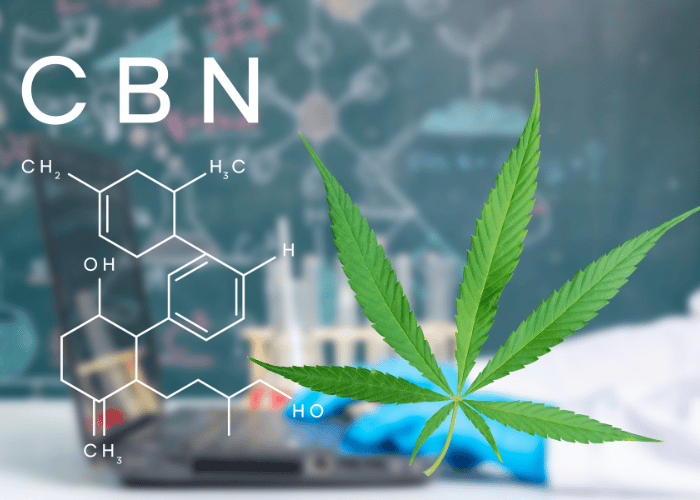What is CBN?

What is CBN?
Table of Contents

What is CBN?
CBN or Cannabinol, is one of over 140 cannabinoids found in cannabis and hemp plants. Although CBN belongs to the same class of compounds in cannabis as CBD, each cannabinoid has a unique expression in the body. CBN is mildly psychoactive and is typically a minor-occurring cannabinoid in the hemp plant compared to CBD, the most predominant cannabinoid in hemp. When hemp or cannabis is oxidized, the tetrahydrocannabinolic acid (THCA) in the plant is converted into CBN. As the plant ages the amount of CBN in the plant increases. Although it is not as popular or well-known compared to CBD due to a lack of studies and marketing, it has a purpose and potential health benefits.
CBD vs CBN – What’s the Difference?
CBD and CBN do not share the same functions. One difference is the amount of CBD vs. CBN present when hemp is grown. Unless manipulated to produce higher levels of CBN, hemp plants can contain between 10 – 28% CBD by dry weight, whereas the amount of CBN may only be between 1 – 2%. CBD is not psychoactive so it cannot get you “high,” but if someone takes enough CBN, they may experience low levels of euphoria. Remember, CBN is a byproduct of oxidation and aging of a cannabis or hemp plant, and it is about 75% less psychoactive than THC, making it extremely mild. Whereas CBD is known for its anti-inflammatory and anxiolytic effects, CBN is being studied for its sedative effects to support sleep and for its neuroprotective potential, to support neuronal health.
Benefits and Uses of CBN
One reason that CBN is less known than CBD is because of a lack of medical studies using the cannabinoid; however, things are looking up for CBN. It has been shown to possess sedative effects, especially when combined with CBD, which may be a blessing for people struggling with poor sleep habits. Its neuroprotective properties were observed in a medical study with mice. It was shown that CBN has the ability to slow the progression of neurodegeneration, which holds promise for people with neurodegenerative diseases such as Alzheimer, Parkinson’s, Amyotrophic Lateral Sclerosis (ALS) etc… Another study concluded that CBN may possess antibacterial properties showing the potential to provide powerful support towards antimicrobial resistance.
How do you take CBN?
Because CBN is not as popular as CBD, the form factors available can be limited but as growers and manufacturers catch on, more will be hitting the shelves sooner than later. Meanwhile, you can find CBN capsules, CBN gummies, and CBN tinctures. The best advice is to start low and go slow and adjust your dose based on the feedback your body gives you once you start taking it.
What are the Side Effects of CBN?
CBN is most known for its sedative effects, so one needs to be cognizant of when they take a CBN product because it can cause drowsiness, so it is best to try CBN in the evening when your daily roles and responsibilities are done. Then, you will be able to evaluate whether you can do it during the day or not. Also, because CBN is the result of THC conversion due to oxidation and aging, there is a chance that one may produce a false positive on a drug test, and while the likelihood is extremely low, there are always exceptions, so just be aware. If you notice any severe side effects or adverse drug reactions after taking CBN, call 911 or go to the closest medical facility or hospital to seek medical assistance.
Where can you get CBN Products?
Since CBD is ubiquitous and turning up in everything from shampoo to pet treats to coffee and teas, you need to exercise caution when procuring your hemp-derived CBN products. Be sure to purchase from a reputable source where the products contain Certificates of Analysis or COAs for short. If you can purchase organic hemp products with clean sugar sources and no artificial additives or fillers, you’re on the right track. If organic pricing is unreasonable, search for non-GMO as this is practically as good as organic. While good for specific things, I would highly recommend against purchasing any type of cannabis or hemp-derived product from a convenient store or a gas station because it is inexpensive, and the quality and efficacy will be lacking.

